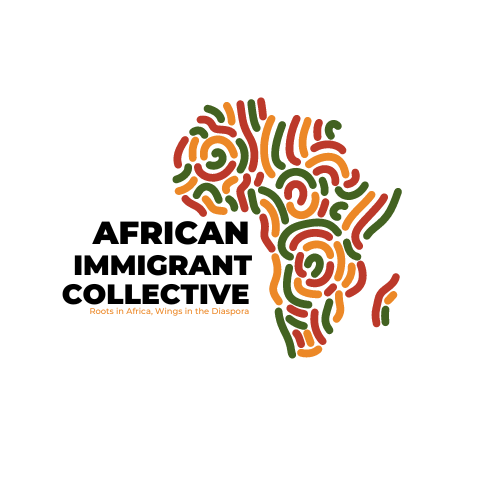The tech industry offers immense opportunities, but for African immigrants, the path to success can be riddled with unique challenges. At AIPN, we’re committed to empowering our community to overcome these obstacles and thrive in the dynamic world of technology. Let’s explore some common challenges and strategies to conquer them.
- Overcoming Bias and Stereotypes
Challenge: Unconscious bias and stereotypes can affect hiring decisions and workplace dynamics.
Solutions:
- Develop a strong personal brand that showcases your skills and achievements.
- Seek out companies with proven commitment to diversity and inclusion.
- Build a portfolio of projects that demonstrate your expertise.
- Network actively to create personal connections that can bypass initial biases.
Tip: Participate in hackathons or open-source projects to gain visibility in the tech community.
- Navigating Cultural Differences in Workplace Communication
Challenge: Different communication styles can lead to misunderstandings or missed opportunities.
Solutions:
- Familiarize yourself with American business communication norms.
- Practice assertive communication while maintaining respect.
- Seek feedback on your communication style from trusted colleagues.
- Use your unique perspective to bridge communication gaps in global teams.
Tip: Join a local Toastmasters group to improve your public speaking and leadership communication skills.
- Dealing with Imposter Syndrome
Challenge: Feeling like you don’t belong or aren’t qualified enough is common, especially in competitive tech environments.
Solutions:
- Recognize that imposter syndrome is common, even among highly successful professionals.
- Keep a record of your achievements and positive feedback.
- Seek mentorship from other successful African immigrants in tech.
- Continuously update your skills to build confidence.
Tip: Start a support group with other immigrant tech professionals to share experiences and strategies.
- Overcoming Visa and Immigration Hurdles
Challenge: Visa restrictions can limit job options and create uncertainty.
Solutions:
- Stay informed about immigration laws and potential changes.
- Seek employers who are experienced in sponsoring work visas.
- Consider furthering your education to qualify for academic or advanced degree visas.
- Network with immigration lawyers specializing in tech industry visas.
Tip: Attend AIPN workshops on navigating the U.S. immigration system for tech professionals.
- Bridging the Network Gap
Challenge: Limited professional networks can hinder job opportunities and career advancement.
Solutions:
- Actively participate in tech meetups, conferences, and online communities.
- Leverage social media platforms like LinkedIn to connect with industry professionals.
- Join professional associations related to your specific tech field.
- Volunteer for tech-related community projects to expand your network.
Tip: Set a goal to make at least one new professional connection each week.
- Addressing Credential Recognition
Challenge: Degrees or certifications from African institutions may not be readily recognized.
Solutions:
- Obtain additional certifications from recognized U.S. institutions or tech companies.
- Clearly communicate the value and rigor of your educational background.
- Focus on building a strong portfolio that demonstrates practical skills.
- Consider having your credentials evaluated by a recognized U.S. evaluation service.
Tip: Research the most valued certifications in your specific tech niche and prioritize obtaining them.
- Balancing Cultural Identity with Workplace Assimilation
Challenge: Feeling pressure to conform while wanting to maintain cultural identity.
Solutions:
- Find ways to share your cultural background that add value to your team.
- Seek out or create employee resource groups for African professionals.
- Be confident in bringing your unique perspective to problem-solving.
- Educate colleagues about the tech landscape and potential in African countries.
Tip: Propose a “cultural innovation day” where team members share how their backgrounds influence their approach to tech challenges.
- Overcoming Language Barriers
Challenge: Even with strong English skills, technical jargon and colloquialisms can be challenging.
Solutions:
- Immerse yourself in tech podcasts, videos, and articles to familiarize yourself with industry-specific language.
- Don’t hesitate to ask for clarification on terms or expressions you don’t understand.
- Use language learning apps to improve your technical English vocabulary.
- Practice explaining complex technical concepts in simple terms to improve your communication skills.
Tip: Start a tech book club with colleagues to discuss industry literature and improve your technical language skills.
- Dealing with Lack of Representation
Challenge: Being the “only one” can feel isolating and increase pressure to represent all African immigrants.
Solutions:
- Become an active mentor to other African immigrants in tech.
- Advocate for diversity in hiring and promotion practices within your company.
- Share your success stories to inspire others and change narratives.
- Collaborate with HR to develop initiatives that attract more diverse tech talent.
Tip: Start a blog or YouTube channel sharing your experiences as an African immigrant in tech to provide visibility and guidance for others.
At AIPN, we’re dedicated to supporting African immigrant professionals in overcoming these challenges and achieving success in the tech industry. Our programs, such as the Tech Skills Lab Sessions and mentorship opportunities, are designed to equip you with the tools and connections needed to thrive.
[Call to Action: Ready to break through barriers and accelerate your tech career? Join AIPN today and access resources tailored for African immigrant professionals in the tech industry!]
Remember, your unique background is not just a challenge to overcome—it’s a powerful asset that can drive innovation and bring fresh perspectives to the tech world. By facing these challenges head-on and leveraging your strengths, you’re not just advancing your own career, you’re paving the way for future generations of African tech professionals.

